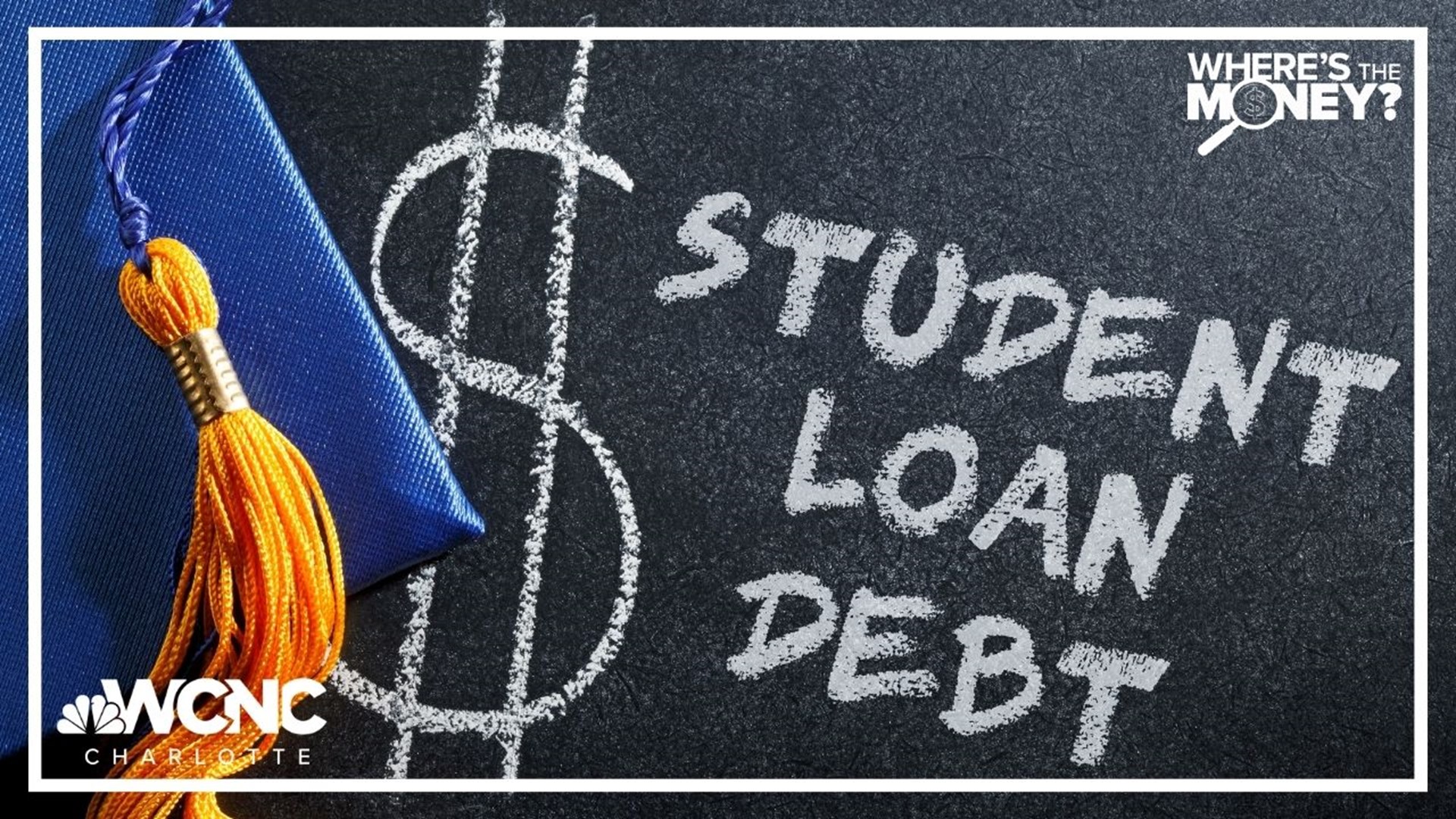CHARLOTTE, N.C. — WCNC Charlotte has been covering the burden of student loan debt, especially how it presents as mental health issues.
A Credit Karma study in August showed more than half of borrowers polled say they have to choose between paying debt or paying rent.
Another poll shows online education researchers found that 54% of those borrowers say issues like anxiety and depression are directly tied to debt.
It's why we're taking a closer look at ways to address debt. and what repayment plans could work for you.
Picking up another job or refinancing loans are top options for some. but you may want to take a look at repayment plans as well.
CNBC breaks it down like this: the new SAVE plan from the Biden Administration is not a one size fits all.
Explaining further, the plan caps your payments at what's called discretionary income. It's a number that compares how much you make to the federal poverty line.
Those making less than about $32, 800 yearly pay nothing. For those making above that it could pay more to look at other income-driven plans.
CNBC is now plugging the student loan stimulator so borrowers can compare plans.
It's important to mention you may owe income tax on any amount of debt you have forgiven. Several states treat forgiven debt as taxable income. Right now there's a waiver on federal income taxes on forgiven debt, although the hold is temporary: the waiver expires in 2025.
Contact Kia Murray at kmurray@wcnc.com and follow her on Facebook, X and Instagram.
WCNC Charlotte's Where's The Money series is all about leveling the playing in the Carolinas by helping others and breaking down barriers. WCNC Charlotte doesn't want our viewers to be taken advantage of, so we’re here to help. Watch previous stories where we ask the question “Where’s the Money” in the YouTube playlist below and subscribe to get updated when new videos are uploaded.

